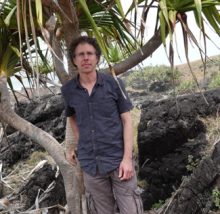Can sexual conflict help to resolve the paradox of sex?

Russell Bonduriansky
University of New South Wales
Despite many decades of research, we still do not understand why sexual reproduction is so prevalent in animals. Efforts to resolve this paradox have focused on identifying benefits of sex, but such benefits (e.g. enhanced evolvability) seem to be strongly context-dependent. Moreover, theory suggests that facultative strategies that allow for switching between sexual and asexual reproduction should easily outcompete obligate sexual or asexual strategies. Why are such facultative strategies so rare? Over the past several years, my research group has been exploring a new, fundamentally different solution to this paradox based on sexual conflict. Rather than assuming that sex predominates because it confers benefits, the sexual conflict hypothesis posits that the presence of coercive males acts as a powerful, phylogenetically widespread impediment to the invasion of sexual populations by obligate or facultative asexual strategies, turning sex into an evolutionary trap. I will discuss our theoretical work and experimental findings in facultatively (a)sexual stick insects, and outline preliminary findings from a new study aimed at testing the sexual conflict hypothesis in natural populations.
Recent publications:
Burke, N.W. and Bonduriansky, R. 2017. Sexual conflict, facultative asexuality, and the true paradox of sex. Trends in Ecology and Evolution 32: 646-652.
Burke, N. W., and Bonduriansky, R. 2018. The geography of sex: sexual conflict, environmental gradients, and local loss of sex in facultatively parthenogenetic animals. Philosophical Transactions B 373: 20170422.
Burke, N.W. and Bonduriansky, R. 2019. The paradox of obligate sex: the roles of sexual conflict and mate scarcity in transitions to facultative and obligate asexuality. Journal of Evolutionary Biology 32: 1230-1241.
Link to seminar:
http://www.bonduriansky.net Watch previous seminars on our YouTube channel: https://www.youtube.com/channel/UCrX4IsZ8WIFcDa0ZmC7rcQg


